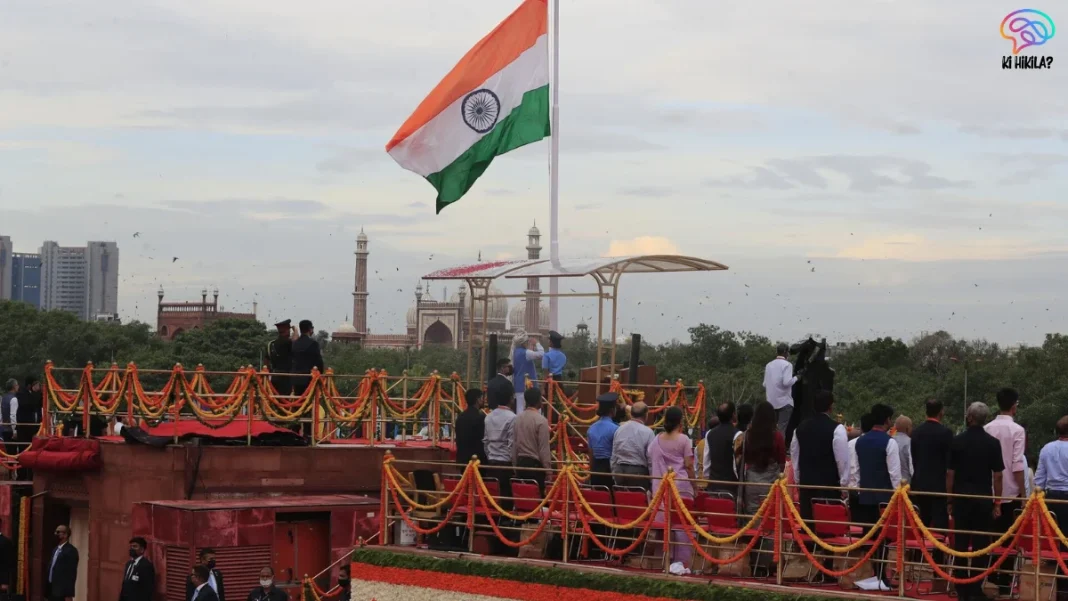India’s Demographic Mission has become the latest focus of the government as it intensifies efforts to address illegal immigration and its impact on national security, social stability, and regional demographics. Prime Minister Narendra Modi recently announced the launch of a high-powered Demography Mission to curb unauthorized migration and ensure that demographic changes do not destabilize sensitive border regions.
Background
In 2025, India faces heightened attention on the issue of illegal immigration, particularly from Bangladesh. Authorities have stepped up identity verification processes, detention drives, and monitoring of suspected foreign nationals. The Demography Mission seeks to prevent illegal settlements that could alter the demographic balance in border districts and compromise national security. The government stresses that the initiative is essential to protect India’s sovereignty and uphold law and order.
Demographic Changes and National Security
Demographic shifts in border areas are increasingly viewed as a direct threat to India’s security apparatus. Infiltration and unauthorized settlements can fuel local conflicts, create social unrest, and weaken the governance of vulnerable regions. The mission is designed to strengthen the enforcement of immigration laws and improve surveillance in sensitive zones. Officials argue that no nation can afford to ignore demographic pressures that threaten the unity and stability of its society.
The initiative includes stringent measures to track migration patterns, verify citizenship, and prevent illegal settlements. These steps aim to reduce tensions in border states while ensuring that security forces have the tools to respond to potential threats. Experts suggest that the mission, if effectively implemented, could stabilize affected regions and restore confidence in administrative oversight.
Impact on Tribal and Vulnerable Communities
One of the core concerns driving India’s Demographic Mission is the protection of tribal, indigenous, and backward communities in border and ecologically sensitive areas. Illegal migration is reported to disproportionately affect these populations, as outsiders sometimes encroach upon land traditionally held by adivasis and other vulnerable groups.
The socio-economic consequences are significant. Tribal communities face loss of land, diminished livelihoods, and erosion of cultural practices. The Demography Mission includes measures to safeguard land rights, enforce proper documentation, and ensure that development initiatives benefit local populations without undermining their traditional way of life. Government officials emphasize that protecting these communities is integral to maintaining social harmony and preserving India’s cultural diversity.
Political Dimensions and Regional Responses

The initiative has generated political debate, particularly in states like Assam, West Bengal, and parts of northeastern India. The BJP accuses regional parties of overlooking illegal migration for electoral advantage, while opposition groups argue that the mission unfairly targets specific communities.
The Election Commission’s Special Integrated Revision (SIR) drive, aimed at updating citizenship and voter records, has intensified these political debates. While some regional governments have embraced stricter controls and verification procedures, others have criticized them as discriminatory. Balancing political sensitivities with national security imperatives remains a major challenge for policymakers overseeing India’s Demographic Mission.
State-Level Measures and Challenges
Several states have taken independent steps to curb demographic shifts. In Assam, for instance, restrictions on land sales in sensitive districts have been implemented to prevent illegal acquisition by non-residents. Prior government approvals are now required for land transactions, reflecting the state’s proactive approach to managing demographic challenges.
Other states have been slower to adopt uniform measures, leading to uneven enforcement. The Demography Mission seeks to create a coordinated national framework while respecting regional autonomy. Effective implementation depends on collaboration between central and state authorities, transparent monitoring systems, and robust community engagement.
Future Outlook and National Debate
India’s Demographic Mission is expected to become a defining theme in the nation’s political, social, and security discourse. Its success hinges on balancing border security, demographic stability, and human rights concerns.
Experts highlight that while the mission is essential for national security, it must be executed with care to avoid alienating communities or escalating political tensions. Transparent policies, fair verification processes, and continued dialogue with regional authorities will be crucial in achieving the mission’s objectives.
Ultimately, the Demography Mission reflects India’s broader effort to preserve its demographic and cultural identity amid evolving regional and global challenges. As the initiative unfolds, it is likely to shape governance, community relations, and national security strategies for years to come.



